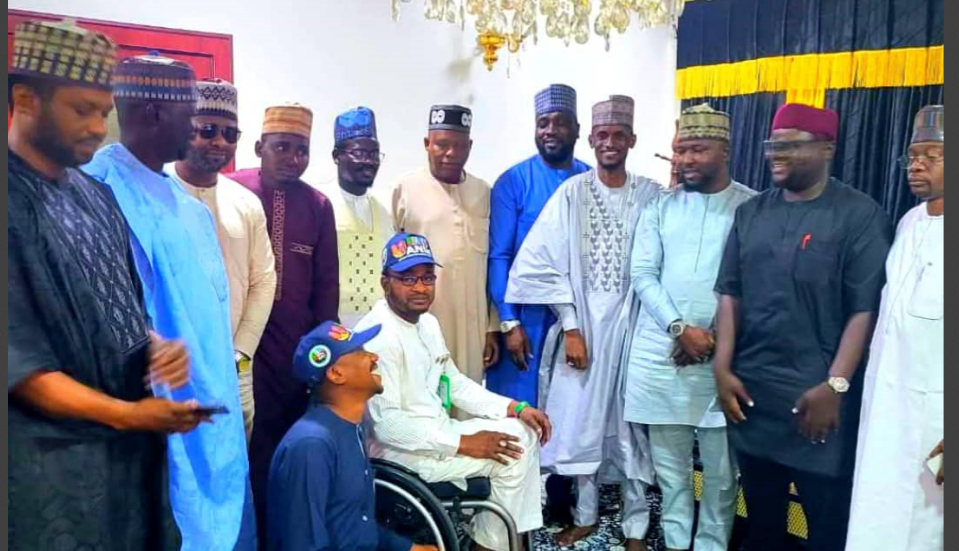The clamor for representation in President Bola Tinubu’s cabinet reverberated through the halls of the All Progressives Congress (APC) national secretariat as stakeholders from the Northeast region rallied for the appointment of Haruna Sardauna as the Minister of Humanitarian Affairs and Disaster Management. Sardauna’s advocates, led by the APC Youth Stakeholders Forum, emphasized his deep roots in the region, his extensive experience in political mobilization, and his intimate understanding of the humanitarian crises plaguing the Northeast, a region ravaged by the Boko Haram insurgency. They presented a compelling argument centered on Sardauna’s qualifications and the region’s dire need for a representative who could effectively champion its recovery and development. This advocacy underscored the ongoing struggle for political inclusion and the equitable distribution of power within the Nigerian political landscape.
The stakeholders’ appeal directly targeted Vice President Kashim Shettima and National Security Adviser Nuhu Ribadu, both prominent figures from the Northeast, urging them to leverage their influence within the Tinubu administration to secure the ministerial position for their region. The vacancy arose following the election of the former minister, Nentawe Yilwatda, as the APC National Chairman. The group highlighted the glaring disparity in youth representation within the President’s appointments, pointing to a stark imbalance where the Northwest region boasts a disproportionately high number of appointees while the Northeast lags significantly behind. This perceived inequity fueled the stakeholders’ determination to ensure their region received its due share of political appointments, particularly in a ministry so crucial to its recovery.
The push for Sardauna’s appointment was not merely a regional plea; it was deeply intertwined with the political trajectory of the APC itself. The stakeholders emphasized Sardauna’s unwavering loyalty to President Tinubu, tracing his commitment back to his role as Deputy National Chairman of the Tinubu Youth Ambassadors in 2016 and his current position as Director-General of the Renewed Hope Youth Ambassadors. They portrayed him as a crucial asset to the party, a figure capable of galvanizing grassroots support and strengthening the APC’s foothold in the Northeast ahead of the 2027 presidential election. This strategic dimension of their appeal aimed to resonate with the party’s leadership, framing Sardauna’s appointment not just as a regional imperative but as a politically astute move for the APC’s future prospects.
Beyond his political affiliations, Sardauna’s qualifications for the ministerial role were presented as exceptionally well-suited to the Northeast’s unique challenges. The region, burdened by the devastating impact of the Boko Haram insurgency, grapples with a complex humanitarian crisis encompassing internally displaced persons (IDPs), widows, orphans, and persons with disabilities. The stakeholders argued that Sardauna, a native of the region, possesses an intrinsic understanding of these multifaceted challenges, making him uniquely positioned to design and implement effective policies and programs tailored to the Northeast’s specific needs. They emphasized his background in public administration and his fellowship with the Chartered Institute of Public Administration and Governance as further evidence of his competence and expertise.
The APC Youth Stakeholders Forum’s campaign received significant support from other Arewa youth groups, broadening the base of support for Sardauna’s candidacy. These groups, also advocating for greater youth representation in Tinubu’s cabinet, endorsed Sardauna alongside Hon. Nasir Ja’oji from the Northwest, solidifying the push for a more inclusive and representative government. This coalition of youth groups amplified the call for a more equitable distribution of political power, emphasizing the importance of youth voices and perspectives in shaping the nation’s future. Their collective endorsement underscored the growing momentum behind Sardauna’s appointment and the broader movement for greater youth participation in Nigerian politics.
In essence, the stakeholders’ plea for Haruna Sardauna’s appointment as Minister of Humanitarian Affairs and Disaster Management represented a confluence of regional interests, political strategy, and humanitarian concerns. They presented a cohesive argument highlighting Sardauna’s qualifications, his deep understanding of the Northeast’s challenges, and his potential to contribute significantly to the region’s recovery and development. Their advocacy serves as a microcosm of the larger dynamics within Nigerian politics, reflecting the ongoing negotiation for power, representation, and the pursuit of a more inclusive and responsive government. The outcome of their campaign remains to be seen, but their efforts underscore the vital role of advocacy and representation in shaping the political landscape and addressing the complex challenges facing the nation.


